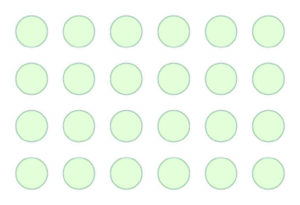by Junaid Mubeen
mathematician turned educator
The prospect of helping children with maths is daunting for some parents. Many may have struggled with the subject at school and, with a fifth of adults in the UK afflicted with ‘maths anxiety’, it’s not always obvious how to provide encouragement and support for our little ones.
Recent research commissioned by non-profit, Teach Your Monster, found that 72% identify maths as the most important subject for their child. In contrast to Rishi Sunak’s quest to make children continue to study maths until they are 18, 67% of parents believe the focus should be on helping younger learners to get to grips with the subject. As both a mathematician and parent, I wholeheartedly agree. If we can embed core maths skills – and a love of the subject – from a young age, then we will set them up for success in the subject for the rest of their lives.
The survey also revealed that 40% of parents find maths intimidating. Sadly, our own attitudes can filter down – when we say things like “I can’t do maths” (which we do not say for any other subject), children readily adopt the same beliefs about themselves. But there is a flipside: by adopting a more positive approach towards maths, we can ensure that children develop a love of the subject.
The good news is that our relationship with maths is never beyond repair. There is nothing to fear when it comes to numbers. Memorising times tables and performing calculations at speed – these elements of the subject, which fill so many people with dread and anxiety – are only a tiny part of what maths has to offer. At its core, maths is about playing with ideas, exploring the patterns inherent in them, and making new discoveries. It promises the same thrill that comes from solving a jigsaw and seeing how all the ‘pieces’ fit together.
A numerical exploration
Take 24 counters (or M&Ms, if you can resist the urge of eating them) and arrange them into a rectangle. Here is one way – how many more can you come up with?

What you’re actually doing here is working out the factors of 24 – the numbers that divide into it (the rectangle above is 4 by 6, so these are both factors are 24). But you’ve done so in a tactile way that strengthens your ‘feel’ for numbers. You may also have confronted some interesting questions along the way – for instance, is the following rectangle the same or different to the one above (it’s debatable!)?
We can keep exploring: what happens when we remove a counter (or succumb to eating an M&M)? We have 23 left, and it seems we can’t make any rectangles except the longest ones, 23×1 and 1×23.
![]()
This is an example of a prime number, and you now have a good visual sense of the indivisibility that makes these numbers so intriguing. Notice how play is at the heart of this type of learning. We are connecting several different ideas – numbers as shapes, for instance – that deepen our understanding of these concepts.
There are lots of ways to explore concepts in this playful way from a young age. With the right resources, maths can be made far more creative and fun than parents may have experienced in school.
Free online games like Teach Your Monster Number Skills, which is a major hit with my four year old daughter Leena, are designed to help young children master core number skills in a way that is fun. It teaches essential concepts like number bonds and addition/subtraction using compelling visuals and game-based activities. Each number is brought to life through a range of representations – I can see Leena developing an intimate relationship with numbers as she learns to recognise them in different contexts.
As a mathematician I see the learning shine through; the game provides a secure foundation in maths that will have a lasting impact. And as a parent I can see how much fun my child is having – she can’t get enough of the game!
Crucially, Teach Your Monster Number Skills is designed with parents in mind – parents can play along too and discover that maths can be fun (they can also take a step back – everything is flexible). Instead of the fear and dread that often surrounds maths, parents can look forward to playing the game with their child, and seeing how, when taught the right way, maths is for everyone.
It’s never too late to develop healthy attitudes towards maths. When we say we can do maths and that we are maths people, we send a profound message to children that they too can develop mastery of the subject.
Junaid Mubeen is a mathematician turned educator, series winner of Countdown, author of Mathematical Intelligence (https://profilebooks.com/work/mathematical-intelligence/), and expert advisor to to non-profit children’s online game, Teach Your Monster Number Skills www.teachyourmonster.org/numberskills










